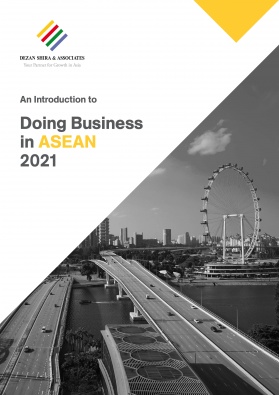Indonesia to Build Electric Vehicle Battery Plant, Production Starting in 2023
Indonesia is set to build its first electric vehicle (EV) battery plant and aims to begin production by 2023.
The project is being initiated by Indonesia Battery Corp (IBC) — a holding company consisting of four state-owned enterprises, namely MIND ID, PT Pertamina, PT Perusahaan Listrik Negara, and PT Aneka Tambang Tbk — and a consortium led by South Korea’s LG Group in what will be an initial investment worth US$1.2 billion.
However, the total investment for the IBC-LG project is estimated to reach US$9.8 billion and employ 1,000 workers.
The Kota Deltamas industrial area in Bekasi, West Java province, has been chosen as the facility site, being only two hours from Jakarta by road, and will span some 33 hectares. The facility is expected to have a capacity of 10 Gigawatt hours (GWh) (one gigawatt equals 1 billion watts of electric power), with the batteries manufactured there slated to be used in Hyundai electric vehicles.
Furthermore, a Chinese consortium, which includes China’s Contemporary Amperex Technology (CATL), will invest US$5 billion in a lithium battery plant in Indonesia, with production starting in 2024; both CATL and LG supply the batteries for Tesla’s made-in-China models.
Indonesia wants to increase production to reach a battery capacity of 140 GWh by 2030 from which 50 GWh will be allocated for export. The remainder will be used for Indonesia’s domestic electric vehicle industry — mainly for motorbikes rather than cars.
With Indonesia looking to boost investment in its EV battery sector to US$33 billion by 2033, the country presents ample opportunities for foreign EV manufacturers.
Why should electric vehicle and battery producers move to Indonesia?
Abundant natural resources
A key material in the production of electric vehicle batteries is nickel, and Indonesia has one of the world’s largest reserves for these commodities.
Indonesia accounted for roughly 30 percent of the world’s nickel production and is home to 22 percent of the world’s known nickel reserves, ahead of Australia and Brazil, with some 21 million tons. Indonesia produced 760,000 tons of nickel in 2020.
Another key component in electric vehicle batteries is copper, and Indonesia’s Grasberg mine has the second-largest reserve of copper in the world as well as the world’s largest reserve of gold.
Indonesia wants to take a central position in the EV supply chain
Indonesia wants to move up the EV supply chain from mining the ore to refining it, to manufacturing the batteries and eventually manufacturing the vehicles. And since the country controls the raw input, it is finding that it has a lot of leverage.
A decade ago, Indonesian nickel exports reached 64 million tons in 2013, but the following year, outgoing President Susilo Bambang Yudhoyono banned the exports of the commodity, with the goal of developing the downstream industry by forcing nickel companies to build smelters and refine the ore in Indonesia. The ban was only implemented in January 2020 and the government also announced a ban on unprocessed copper concentrate and bauxite by 2023.
Demand for nickel has continued to increase, thanks to EV batteries, and Indonesia saw over US$6 billion in foreign investments for the construction of nickel smelters and other downstream processing activities.
Furthermore, Indonesia is also focusing on developing two nickel-based battery blends, consisting of nickel-cobalt-manganese and lithium-cobalt-nickel-aluminum, which are considered two of the most popular blends used in EV lithium-ion batteries.
Available incentives
In 2019, Indonesia’s government introduced a variety of incentives for EV manufacturers, transport companies, as well as consumers. This includes import tariff reductions for machinery and materials used for EV production, and tax holiday incentives for up to 10 years for EV manufacturers that make at least 5 trillion rupiah (US$346 million) in investments in the country.
Divestment of shares still required for foreign investors
Mining activities are not included in Indonesia’s latest Positive Investment List and are technically open to 100 percent foreign ownership.
However, foreign investors must be aware of Government Regulation No. 23 of 2020 and Law No. 4 of 2009 (amended), which states that foreign-owned mining companies must gradually divest at least 51 percent of their shares to Indonesian shareholders, by the 10th year of commencing commercial production.
Most notably, this rule was implemented by Freeport-McMoran (FCX), the owner of PT Freeport Indonesia (PTFI), which operates the Grasberg mine in Papua province; the mine is home to the world’s largest gold reserve.
PTFI was previously 90.64 percent owned by FCX, but in 2018, the Indonesian government took control of 51.23 percent of the company in exchange for the extension of Freeport’s mining operation permit.
About Us
ASEAN Briefing is produced by Dezan Shira & Associates. The firm assists foreign investors throughout Asia and maintains offices throughout ASEAN, including in Singapore, Hanoi, Ho Chi Minh City, and Da Nang in Vietnam, Munich, and Esen in Germany, Boston, and Salt Lake City in the United States, Milan, Conegliano, and Udine in Italy, in addition to Jakarta, and Batam in Indonesia. We also have partner firms in Malaysia, Bangladesh, the Philippines, and Thailand as well as our practices in China and India. Please contact us at asia@dezshira.com or visit our website at www.dezshira.com.
- Previous Article Cambodia Issues Ninth Round of Stimulus Measures
- Next Article BioNTech to Build Vaccine Manufacturing Site in Singapore







